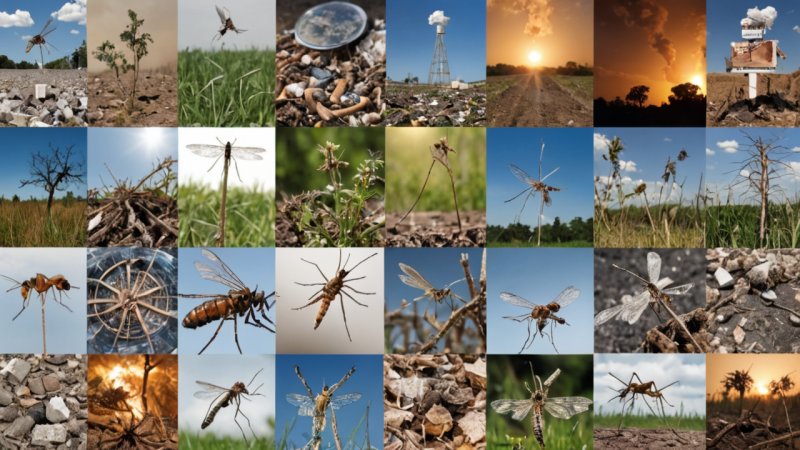Climate change is not just an environmental issue; it is a pressing public health concern that affects millions across the globe. As temperatures rise and weather patterns shift, the implications for human health are profound and multifaceted. Understanding how climate change intersects with health can help communities prepare and adapt to these changes. Here are key ways in which climate change is influencing human health and disease patterns.
Increased Respiratory Issues
As air quality deteriorates due to rising temperatures and pollution, respiratory diseases are on the rise. Heat can exacerbate the formation of ground-level ozone, a harmful air pollutant. Vulnerable populations, such as children and the elderly, are particularly at risk.
- Asthma: Studies show that higher temperatures correlate with increased asthma attacks.
- Allergies: Longer pollen seasons and increased allergen production can lead to heightened allergic reactions.
Vector-Borne Diseases
Climate change is altering the habitats of disease-carrying vectors, such as mosquitoes and ticks. Warmer temperatures and changing precipitation patterns can expand the range of these vectors, leading to increased incidences of diseases like malaria, dengue fever, and Lyme disease.
- Malaria: Warmer climates can increase the breeding rates of mosquitoes, heightening malaria transmission.
- Dengue Fever: Regions previously considered too cool for dengue outbreaks are now experiencing cases due to climate shifts.
Food and Water Security
Climate change is impacting agricultural productivity, leading to food shortages and malnutrition. Extreme weather events can destroy crops, and changing climates can affect the nutritional quality of food. Additionally, water scarcity and contamination can lead to health crises.
- Malnutrition: Reduced crop yields can lead to food scarcity, affecting nutritional intake.
- Waterborne Diseases: Flooding and droughts can contaminate drinking water sources, increasing the risk of diseases like cholera.
Mental Health Challenges
The psychological impacts of climate change are becoming increasingly recognized. Natural disasters, displacement, and the stress of adapting to a changing environment can lead to mental health issues.
- Anxiety and Depression: Individuals affected by climate-related disasters often experience heightened anxiety and depression.
- Community Disruption: Displacement from homes due to rising sea levels can lead to a sense of loss and hopelessness.
Heat-Related Illnesses
As global temperatures rise, heat-related illnesses are becoming more common. Vulnerable populations such as the elderly and those with pre-existing health conditions are at greater risk.
- Heat Exhaustion: Prolonged exposure to high temperatures can lead to heat exhaustion and heat stroke.
- Cardiovascular Issues: Increased heat can exacerbate heart conditions, leading to higher mortality rates during heatwaves.
In conclusion, climate change poses significant risks to human health through various channels, including respiratory issues, vector-borne diseases, food and water insecurity, mental health challenges, and heat-related illnesses. As we navigate this complex issue, it is crucial for individuals, communities, and policymakers to prioritize health considerations in climate action strategies to mitigate these impacts effectively.






